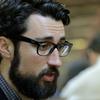Canada is unique in having a relatively small and very geographically diverse population of older adults. Ageing Canadians do, however, benefit from several dedicated groups of gerontologists, notably the AGE-WELL National Centre of Excellence and Canadian Association on Gerontology (CAG), and they both held their annual scientific meetings recently in Vancouver, BC. Coordinating their efforts into two separate, but coordinated, annual conferences, the AGE-WELL and CAG conferences regularly draw researchers, policy makers, entrepreneurs, and older adults to a week’s worth of inspiring scientific content. This year was no different: more than 600 delegates gathered between October 16 -20 for an unseasonably dry Pacific Northwest event.
AGE-WELL stands for “Aging Gracefully across Environments using Technology to Support Wellness, Engagement and Long Life National Centre of Excellence Inc.”, an organization billed as “Canada’s technology and aging network”. The focus of the pan-Canadian network is to accelerate and deliver technology-based solutions that positively impact the lives of older adults and their caregivers. To this end, AGE-WELL has partnered with more than 200 industry, government, and non-profit organizations alongside over 150 researchers at 37 different universities. With a focus on transdisciplinarity, the scope of expertise within AGE-WELL ranges from electrical engineers and computer scientists, to community leaders and persons living with dementia. As a result of this diversity, the annual scientific meeting has a particularly eclectic delegation and vibrant atmosphere.
One of the unique aspects of the AGE-WELL conference is the focus on applied research. This is realized through an abundance of workshops with worked examples and through live pitch events from start-up businesses in the health tech and older adult space. I participated in a workshop on the use of machine learning and artificial intelligence in older adults contexts that aimed to facilitate cross-pollination of ideas from individuals from diverse backgrounds. To this end, each table had seats assigned to participants from a variety of backgrounds, e.g. industry, academia, government, older adults. As a result of having a variety of perspectives being represented at each table, the working groups benefited from going beyond their specific disciplines and to think about things in a different way. I found this to be a great demonstration of how research should be conducted, i.e. using transdisciplinary and stakeholder-informed approaches.
The Canadian Association on Gerontology 2018 annual scientific meeting was hosted by Simon Fraser University’s Department of Gerontology. Dovetailing with the AGE-WELL Conference, the CAG conference focus was “Making it matter: Mobilizing aging research, practice and policy”. Extending the applied focus of AGE-WELL’s remit, knowledge translation and mobilization was a reoccurring theme throughout the conference. The conference began on a high note with a keynote from Professor Carol Brayne CBE, entitled “Changing Societies, Ageing Minds, Brains and Dementia”. This talk was particularly special for me because Professor Brayne supervised my doctoral work at the Cambridge Institute of Public Health, University of Cambridge, where she is Director. Her talk was the culmination of her 30 years in the field of ageing research, highlighting a population perspective of the biomedical and psychosocial changes associated with growing older. An important point raised in the talk was that people cannot be reduced to a single data point or biomarker, and that we must take into consideration all of the factors that contribute to the person as a whole, such as social, economic, psychological, and societal factors. These words resonated throughout the conference, with an incredible diversity of perspectives being represented in the sessions.
Gerontology is uniquely placed in its capacity to look at questions from a variety of perspectives, rather than being bound by institutionalized approaches. For example, at an epidemiology conference the majority of delegates are epidemiologists who have been trained to look at population health using a particular lens. Whilst this represents a valuable contribution to science, I enjoy the range of lenses that gerontologists may use to examine the challenges of an ageing population. Addressing the needs of 5.8 million older Canadians requires innovative and transdisciplinary approaches. Although this seems like a daunting task, given the depth and breadth of expertise on display at the AGE-WELL and Canadian Association on Gerontology Conferences, I think the future looks bright.
About the Author
Theodore D Cosco joined the Oxford Institute of Population Ageing in 2016 as a Research Fellow. He holds a Canadian Institutes of Health Research Postdoctoral Fellowship to conduct a project entitled “Resilience and healthy ageing across the life course” in conjunction with the MRC Unit for Lifelong Health & Ageing.
Comments Welcome:
We welcome your comments on this or any of the Institute's blog posts. Please feel free to email comments to be posted on your behalf to administrator@ageing.ox.ac.uk or use the Disqus facility linked below.
Opinions of the blogger is their own and not endorsed by the Institute
Comments Welcome: We welcome your comments on this or any of the Institute's blog posts. Please feel free to email comments to be posted on your behalf to administrator@ageing.ox.ac.uk or use the Disqus facility linked below.













